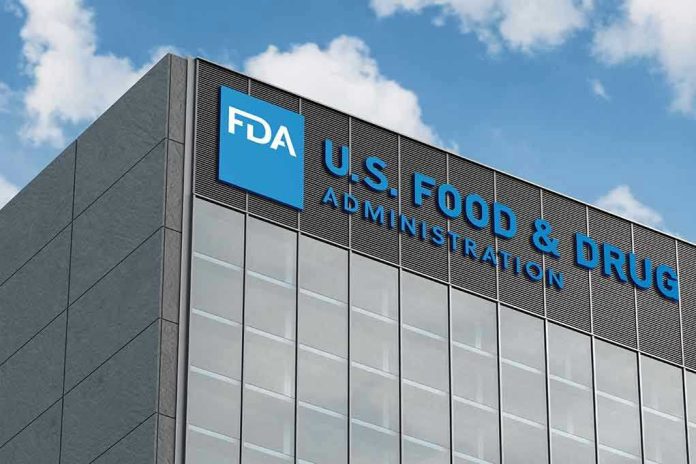
Over 140,000 bottles of a popular cholesterol drug have been recalled due to potential efficacy issues, raising concerns about the reliability of generic medications.
Story Highlights
- Over 140,000 bottles of Atorvastatin Calcium Tablets recalled in the U.S.
- Recall due to failure in dissolution specifications, which may affect drug efficacy.
- FDA classifies this as a Class II recall, indicating remote risk of serious issues.
- Patients and healthcare providers must navigate potential treatment disruptions.
Scope and Significance of the Recall
The recall of over 140,000 bottles of Atorvastatin Calcium Tablets, the generic form of Lipitor, highlights significant concerns in the pharmaceutical industry. The tablets, used to lower cholesterol and prevent cardiovascular diseases, failed dissolution specifications, meaning they may not dissolve properly. This defect can reduce the medication’s effectiveness, posing a risk to millions who depend on it for cholesterol management. The FDA has classified the recall as Class II, indicating potential, albeit remote, health consequences.
The recall impacts a wide range of lot numbers and bottle sizes, with expiration dates reaching into 2027. This extensive scope underscores the critical nature of quality control in drug manufacturing, especially for generic drugs widely distributed across the U.S. The situation calls for immediate attention from patients, healthcare providers, and pharmacies to manage the potential disruptions in treatment plans.
Background and Context
Atorvastatin, approved in the late 1990s, is a cornerstone in managing high cholesterol levels. Its generic form, Atorvastatin Calcium, is produced extensively worldwide. Routine quality control testing revealed that certain lots did not meet necessary dissolution specifications, which ensure that the drug releases its active ingredient at the correct rate for absorption. The failure prompted Alkem Laboratories, the manufacturer, and Ascend Laboratories, the distributor, to initiate a voluntary recall.
Over 140,000 bottles of popular cholesterol drug recalled https://t.co/WfrW4Ifkus
— FOX Business (@FoxBusiness) October 24, 2025
This recall occurs amidst increased scrutiny of pharmaceutical manufacturing standards, particularly for generics produced overseas. The FDA’s role in monitoring compliance is crucial to ensuring drug safety and efficacy. Historical precedents in the industry show that while recalls due to contamination or labeling errors are common, dissolution failures are less frequent, making this recall particularly noteworthy.
Impact on Stakeholders
The recall’s ripple effects extend across various stakeholders. Healthcare providers and pharmacists must navigate the challenge of advising patients on alternative treatments, while patients face potential disruptions in their cholesterol management. The recall also poses reputational risks for Alkem and Ascend, as well as potential financial liabilities. For the FDA, the recall underscores the importance of maintaining rigorous oversight to uphold public trust in the drug supply chain.
Manufacturers and distributors are compelled to reassess their quality control processes to prevent similar occurrences in the future. Meanwhile, healthcare providers play a pivotal role in ensuring patient safety and continuity of care. The incident also sparks broader discussions about the reliability of generic medications and the need for stringent regulatory measures to safeguard public health.
Long-term Implications and Industry Response
In the short term, patients prescribed Atorvastatin may experience disruptions, necessitating medication review and possible replacements. This recall highlights the critical need for robust quality control measures in drug manufacturing. Long-term, the incident could lead to heightened scrutiny of overseas pharmaceutical production and potential regulatory tightening.
The pharmaceutical industry may witness an increased emphasis on dissolution testing to ensure drug efficacy. This incident serves as a wake-up call for manufacturers and regulators alike, prompting reevaluation of current practices and policies. For patients and healthcare providers, the recall reinforces the importance of vigilance and proactive communication to mitigate potential health risks.













